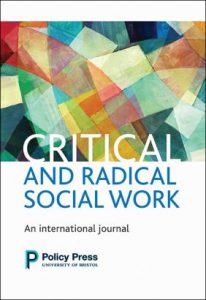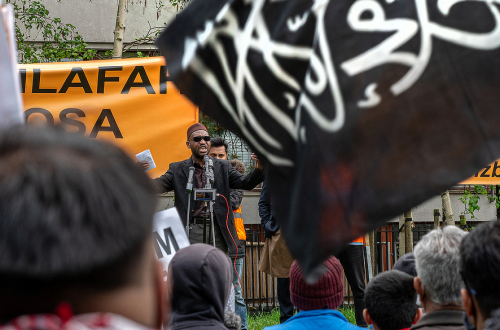
The academic Left, influenced by the Boycott, Divestment and Sections (BDS) movement, is abandoning core academic standards when it comes to the Israeli-Palestine conflict.
In September 2018, the respected journal Critical and Radical Social Work(Policy Press, University of Bristol) published a remarkably simplistic and arguably non-scholarly paper by an academic from Scotland about the controversy concerning left-wing anti-Semitism within the British Labour Party (Maitles 2018).* The paper, whilst of minimal importance in itself, can be seen as symbolising the extent to which sections of the academic Left, influenced by the Boycott, Divestment and Sections (BDS) movement, have abandoned even the pretence of applying core academic standards to debates regarding the Israeli-Palestine conflict. Instead, the presentation of historical facts and empirical evidence concerning Jewish history and experiences, and indeed the determination of political strategies towards anti-Jewish racism, is increasingly subordinated to the higher priority of fighting what is labelled ‘Zionism’ and to aiding the Palestinian nationalist agenda.
Maitles simplistically constructs the Israel-Palestine conflict via the binary opposites of good and bad nations. He essentialises the Israelis as a racist oppressor nation whose sole unifying principle is an alleged desire to harm and murder Palestinians. In contrast, the Palestinians are infantilised as an oppressed people lacking agency, the passive victims of the Israelis from 1948 to the current day. To be sure, Maitles claims to be merely defending what he calls ‘legitimate criticisms of Israeli policy’ (Maitles 2018: 242), or what he refers to elsewhere as ‘the right to be critical of Israel’ (Maitles 2016). As will become evident however, Maitles is not interested in changing Israeli policies in order to advance Palestinian rights and improve the long-term well-being of both peoples. To the contrary, his sole concern appears to be to provide an ideological rationale for Israel’s destruction.
Maitles describes himself as a Jewish and Socialist academic and activist (and could have added without a tinge of immodesty that he has a long-standing involvement in Holocaust education in schools – see Cowan & Maitles 2017) but, remarkably, he makes no reference to the long-standing tensions between particularistic Jewish and universalistic left-wing identities. I have previously described Jewish involvement in the Left historically as incorporating a wide spectrum of Jewish influences and identities. They included specific Jewish labour groups such as the Jewish Labour Bund, left Zionist groups and Jewish-identifying Communist networks who attempted to integrate progressive ideas and Jewish culture; others who mainly identified as internationalists but still demonstrated some concern for combatting anti-Semitism; and finally, non-Jewish or even anti-Semitic Jews who actively rejected any link with other Jews, and were actively hostile to Jewish concerns (Mendes 2014: 15-18). READ MORE.




